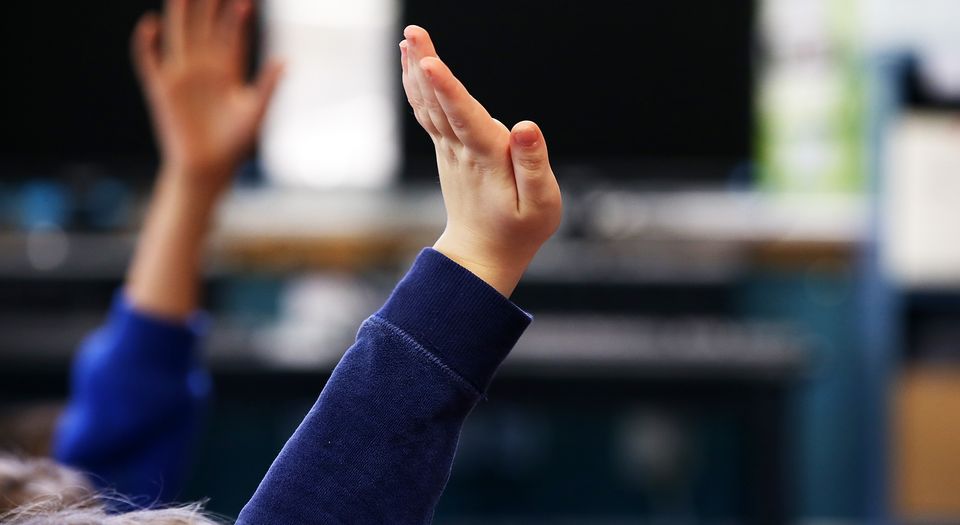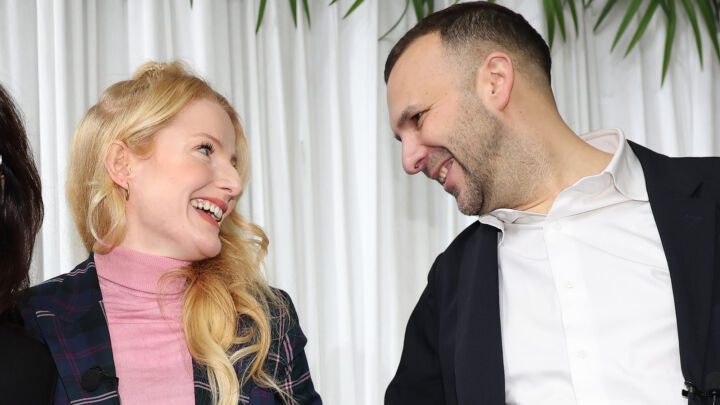Consent classes for four-year-olds? What a terrible idea
We are urging children to see their interactions through the prism of abuse.

Want unlimited, ad-free access? Become a spiked supporter.
What should four-year-olds know about sex? And whose responsibility is it to teach children about relationships? In response to a growing number of sexual assaults reportedly taking place in schools, the government has announced that new sex and relationships classes will teach children as young as four about consent and ‘enforcing boundaries’.
Teaching children the facts of life has long since stopped being the prerogative of parents. Now it seems schools and individual teachers can’t be left to determine what’s appropriate for their pupils either. Since the launch last year of a government review, sex education has become a public talking point. Everyone with a profile to maintain and a campaign to fund has a view to share. Gay-rights activist Peter Tatchell declared last week that parents who want their children to opt out of sex and relationships lessons should have to go into schools and ‘physically’ remove their child from each class.
Over the years, sex education has moved from science classes to personal, social and health education lessons. In the process, it has expanded to encompass a far broader range of issues, including pornography, sexting, relationships, emotions and abuse. Delayed by a year, such classes will be compulsory for all children in state schools from September 2020. But it has already been announced that children will be taught about relationships in lessons that will focus on the ‘building blocks’ and ‘concepts’ of consent in an ‘age-appropriate way’. Secondary pupils will not only discuss consent but study the law on ‘sexual abuse, grooming, domestic violence and harassment’.
The list of what should be added to thes grim lessons – surely enough to put any teenager off having sex for life – grows with every new adult panic about depraved, rapacious men and innocent, vulnerable young women. The idea that children are easy prey to sexual exploitation or abuse, either now or in the future, has taken root. Figures showing a growing number of children reportedly sexually assaulting each other are used to shore up the idea that formal lessons in consent are urgently needed to protect vulnerable youngsters.
Statistics show that, over a four-year period, the police dealt with almost 30,000 reports of children sexually assaulting other youngsters. This figure includes 2,625 alleged attacks on school premises and 225 rapes. Further reports indicate that ‘peer on peer’ abuse among children rose from 4,603 in 2013 to 7,866 in 2017 – an increase of 71 per cent. Other research suggests that between a fifth and a third of all cases of child sexual abuse in the UK involve perpetrators under the age of 18. A random general population survey of more than 6,000 people noted that two-thirds of those who reported sexual abuse in their childhood had been abused by other children.
It’s hard not to get swept along on a tide of horror and outrage when discussing children and sexual abuse. But these numbers hardly warrant it. The police figure for children sexually assaulting other youngsters counts anyone under the age of 18 as a child. The overwhelming majority of the almost 30,000 cases reported involved 17-year-olds – that is people legally over the age of consent. A sexual relationship between a 16-year-old and a 15-year-old, not that difficult to imagine in a school setting, would be a criminal offence even if neither party pressed charges. Of the incidents of child peer abuse reported to police between 2013 and 2017, a massive 74 per cent resulted in no further action. This means that in three quarters of all cases there was either insufficient evidence or no one wanted to proceed with the investigation.
In the past, adults saw kiss-chase as simply schoolyard fun. They looked the other way when children played games exploring each other’s bodies. They turned a blind eye when older teenagers started having sex. Today, adults don’t view such activities as innocent, but as abusive. As a result, they are far more likely to intervene. Certainly, a 71 per cent increase in cases of reported peer-on-peer abuse, at a time when survey after survey tells us youngsters are having less sex than ever before, suggests more monitoring of what young people are getting up to and greater enthusiasm for reporting potential offences.
Claims of 30,000 reported incidents and a 71 per cent increase in child sexual abuse, on school premises, including primary-school playgrounds, make for shocking and emotive headlines. But these are reports, not actual offences. When we look at a yearly figure (rather than lumping four years together) and take out consensual acts between older teenagers, there’s little cause for alarm. But the headlines lead, inevitably, to cries that ‘something must be done’. And, as always nowadays, that something is to stick it on the school curriculum. This means that four-year-olds will be taught how to ‘ask and get permission in relationships with friends, peers and adults’ and that consent can ‘be withdrawn’.
Compulsory sex-and-relationship education is being used to foist adult preoccupations on to ever younger children. When adults see all interactions between children as sexual and abusive, then lessons will teach children to view their relationships and experiences with each other through this lens. Teaching children about consent will almost certainly lead to a huge increase in reported incidents of peer-on-peer sexual assault. Teachers had best be prepared for the countless hours that will be spent mediating between children who have touched each other’s knees without first gaining permission.
Joanna Williams is associate editor at spiked. Her new book, Women vs Feminism: Why We All Need Liberating from the Gender Wars, is out now.
Picture by: Getty
£1 a month for 3 months
You’ve hit your monthly free article limit.
Support spiked and get unlimited access.
Support spiked – £1 a month for 3 months
spiked is funded by readers like you. Only 0.1% of regular readers currently support us. If just 1% did, we could grow our team and step up the fight for free speech and democracy.
Become a spiked supporter and enjoy unlimited, ad-free access, bonus content and exclusive events – while helping to keep independent journalism alive.
———————————————————————————————————————————–
Exclusive January offer: join today for £1 a month for 3 months. Then £5 a month, cancel anytime.
———————————————————————————————————————————–
Monthly support makes the biggest difference. Thank you.










Comments
Want to join the conversation?
Only spiked supporters and patrons, who donate regularly to us, can comment on our articles.